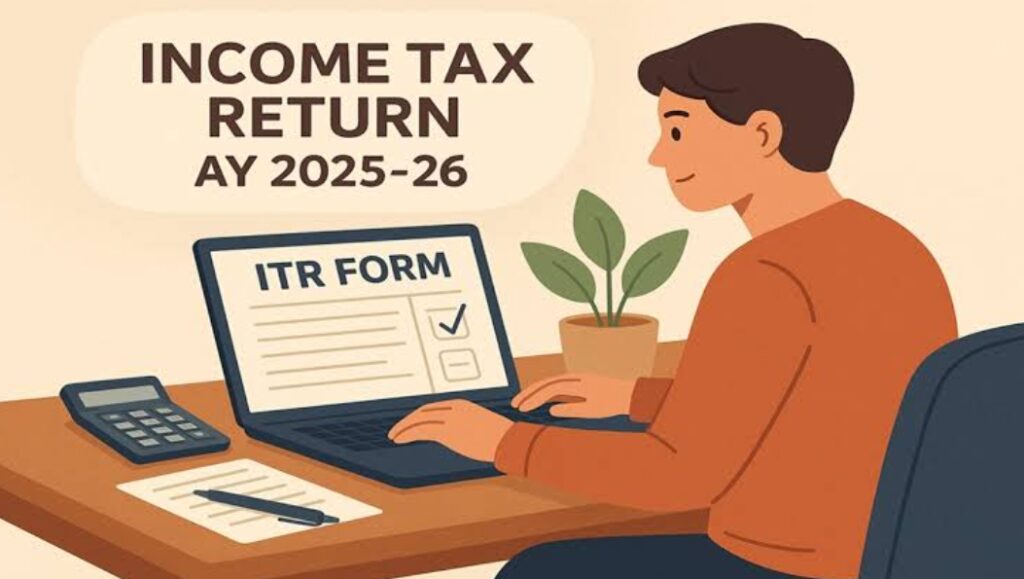Filing an Income Tax Return (ITR) is not just a responsibility but a legal obligation for many individuals in India. Whether you are a salaried employee, a businessperson, a freelancer, or even a non-resident, understanding the rules for mandatory ITR filing is crucial to ensure tax compliance and avoid penalties.
Here’s a detailed guide to help you understand who is required to file an Income Tax Return (ITR) in India, based on the latest income tax rules for the financial year 2024-25 and upcoming changes for FY 2025-26.
1. Individuals Based on Income Thresholds
The most common reason for filing an ITR is when your total income exceeds the basic exemption limit. The limits vary based on age and the tax regime you choose.
a) Basic Exemption Limits for FY 2024-25 (AY 2025-26)
- New Tax Regime: ₹3,00,000
- Old Tax Regime: ₹2,50,000
b) For Senior Citizens (Aged 60 years or above but below 80 years)
- Old Tax Regime: ₹3,00,000
- New Tax Regime: ₹3,00,000
c) For Super Senior Citizens (Aged 80 years or above)
- Old Tax Regime: ₹5,00,000
- New Tax Regime: ₹3,00,000
d) Important Update for FY 2025-26 (AY 2026-27)
Under the new tax regime applicable for the financial year 2025-26, the basic exemption limit has been increased to ₹4,00,000, providing additional tax relief to taxpayers opting for this regime.
2. Mandatory ITR Filing Even Without Taxable Income
Apart from income thresholds, the Income Tax Department has also made it mandatory for individuals to file returns if they meet specific financial transaction criteria, regardless of whether their income is taxable. You are required to file an ITR if any one of the following applies:
✅ Cash Deposits of ₹1 crore or more in one or more current accounts with banks or co-operative banks during the financial year.
✅ Deposits exceeding ₹50 lakh in one or more savings bank accounts during the year.
✅ Expenditure of more than ₹2 lakh on foreign travel, for yourself or any other person.
✅ Electricity bills exceeding ₹1 lakh in aggregate for the financial year.
3. Individuals Holding Foreign Assets
If you are a resident individual holding:
🌐 Bank accounts located outside India
🌐 Overseas immovable property
🌐 Shares, securities, or any other financial interests held abroad
You must file an ITR regardless of your income level, even if your income is below the basic exemption limit.
4. Other Scenarios Requiring ITR Filing
- If you wish to claim a refund of excess TDS or TCS.
- If you are carrying forward a loss under any head of income, such as capital loss or business loss.
- If you are a resident and signing as an authorized signatory for a foreign entity or company.
- If you hold assets or financial interests outside India.
- If you receive income from foreign sources, taxable in India.
5. Benefits of Filing Income Tax Return Even When Not Mandatory
While many people file returns because it is mandatory, filing ITR voluntarily has its own set of benefits:
✔️ Easier loan approvals and visa processing
✔️ Proof of income for various financial transactions
✔️ Claim refunds on TDS or excess tax paid
✔️ Avoid penalties for late or non-filing
Conclusion
Filing your ITR is not just about meeting a legal requirement; it reflects financial responsibility and can help avoid unnecessary scrutiny from tax authorities. With recent updates in exemption limits and reporting requirements, taxpayers must stay updated and file returns timely.
If you are unsure about whether you need to file an ITR, consulting a tax expert or using official government resources can help you make an informed decision.
Stay compliant. File your ITR on time. Avoid penalties.

